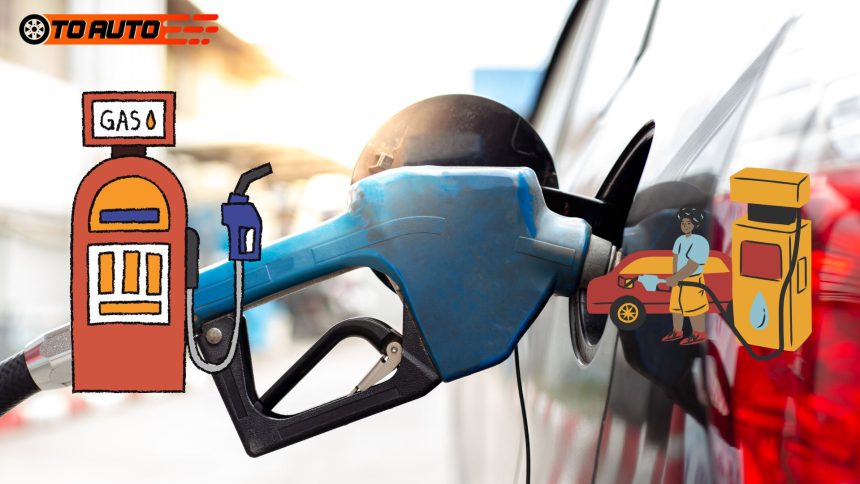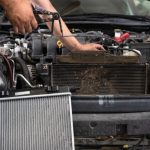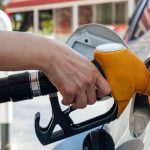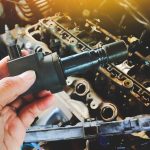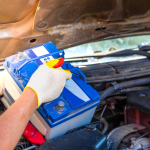In today’s fast-paced world, keeping our vehicles fueled and ready to go is essential, yet it often feels like gas prices are continually on the rise. Whether you’re embarking on a long road trip, commuting to work, or simply running errands, making the most out of each tank of gas can save you both time and money. But how can you stretch that fuel to its fullest potential?
In this article, we’ve gathered ten friendly, straightforward tips that will help you optimize your vehicle’s efficiency and get the most mileage out of your hard-earned gas dollars. From driving habits to maintenance tricks, these easy-to-implement strategies will ensure that you not only save at the pump but also enjoy a smoother, more efficient ride. Let’s dive in and explore how you can make each drop of gas count!
Table of Contents
- Maximizing Fuel Efficiency Through Proper Driving Techniques
- Understanding Your Vehicles Maintenance Needs
- Choosing the Right Routes for Optimal Gas Mileage
- Utilizing Fuel-Saving Technologies and Apps
- Q&A
- Key Takeaways
Maximizing Fuel Efficiency Through Proper Driving Techniques
Driving with fuel efficiency in mind can significantly extend the distance you travel on a tank of gas. One of the most effective techniques is to maintain a steady speed, which can be achieved by using cruise control on highways. This minimizes the fluctuations in your speed that can lead to increased fuel consumption. Additionally, gentle acceleration and braking are essential; aggressive driving can waste fuel quick. Here are some other practices to keep in mind:
- Avoid Idling: Turn off your engine when parked or waiting.
- Plan Routes: Choose the shortest and least congested paths.
- Limit Air Conditioning: Use A/C sparingly, as it can increase fuel consumption.
- Lighten Your Load: Remove unnecessary items from your car to reduce weight.
Another crucial factor is the maintenance of your vehicle. Keeping your tires properly inflated not only improves safety but also enhances fuel efficiency. Tires that are under-inflated can increase rolling resistance, which requires more energy from your engine. Regular oil changes and using the manufacturer-recommended fuel grade can also contribute to better gas mileage. Below is a simple table outlining how different driving habits affect fuel efficiency:
| Driving Habit | Fuel Efficiency Impact |
|---|---|
| Rapid Acceleration | Decreases Efficiency |
| Maintaining Speed | Increases Efficiency |
| Frequent Stops | Decreases Efficiency |
| Regular Maintenance | Increases Efficiency |
Understanding Your Vehicles Maintenance Needs
To maximize the efficiency of your fuel consumption, it’s essential to pay attention to your vehicle’s maintenance needs. Regular checks and services not only keep your car running smoothly but also help you get the most out of every tank of gas. Ensure that you are performing routine maintenance tasks such as:
- Regular oil changes: Old oil can lead to engine inefficiency.
- Air filter replacements: A clean air filter allows for better airflow, boosting engine performance.
- Tire maintenance: Properly inflated tires reduce rolling resistance and improve fuel economy.
- Checking spark plugs: Worn-out spark plugs can cause misfires, wasting fuel.
In addition to these regular checks, keeping an eye on your vehicle’s overall health can prevent minor issues from becoming major problems. Consider using diagnostic tools to monitor engine performance or consulting with a professional for in-depth assessments. Implementing the following strategies can support your vehicle’s efficiency:
- Scheduled maintenance appointments: Stick to a maintenance schedule recommended by your vehicle manufacturer.
- Fluid checks: Regularly inspect coolant, brake, and transmission fluids.
- Battery maintenance: Ensure the battery is clean and functioning optimally.
- Alignment and suspension checks: A well-aligned vehicle reduces drag and improves handling.
Read More: Car Rentals Tips: 15 Secret Ways to Get the Cheapest Price
Choosing the Right Routes for Optimal Gas Mileage
When it comes to maximizing your fuel efficiency, selecting the right driving routes plays a crucial role. Opting for roads with less traffic congestion helps reduce the idle time that can quickly eat away at your fuel reserves. Additionally, consider using routes that maintain a steady speed, as frequent stops and starts can lead to higher fuel consumption. Look for avenues that incorporate the following characteristics:
- Open Highways: Typically allow for smoother driving conditions.
- Minimal Stoplights: Fewer stops translate to less fuel wasted.
- Gentle Slopes: Steeper inclines require more power and increase fuel usage.
Another key factor in route selection is the weather. Rain, snow, and strong winds can significantly impact gas mileage. Plan your trips around favorable weather conditions whenever possible. You can also utilize navigation apps that provide real-time traffic updates and suggest the most efficient routes. These tools can help you avoid delays and prioritize roads that maintain a consistent speed, ultimately allowing you to extract the most from each tank. Below is a simple comparison of route types and their impact on fuel efficiency:
| Route Type | Fuel Efficiency Impact |
|---|---|
| Urban Streets | Lower efficiency due to frequent stops |
| Suburban Roads | Moderate efficiency with occasional stops |
| Highways | High efficiency with steady speed |
Utilizing Fuel-Saving Technologies and Apps
In today’s tech-savvy world, leveraging fuel-saving technologies and apps can significantly enhance your fuel efficiency and help you stretch every drop of gas. Mobile applications designed for fuel tracking allow you to monitor your driving habits, fuel consumption, and maintenance needs. Consider using apps like GasBuddy or Waze, which provide real-time information on the cheapest gas prices and optimal routes based on traffic conditions, respectively. By opting for the most efficient route and the best fuel prices, you can save money and fuel simultaneously. Additionally, onboard diagnostics (OBD) devices can offer insights into your vehicle’s performance, alerting you to inefficiencies that might need addressing.
Moreover, many modern vehicles come equipped with fuel economy gauges that help drivers adjust their driving habits to maximize fuel efficiency. Apps that analyze your driving habits can suggest ways to improve, such as avoiding rapid acceleration and maintaining a steady speed. Eco-driving programs are also available to teach you how to operate your vehicle in a way that minimizes fuel consumption. Here are a few tips to incorporate these technologies into your routine:
- Use fuel price comparison apps to find the best deals near you.
- Track your mileage with fuel tracking apps to identify patterns and reduce consumption.
- Explore eco-driving courses for personalized tips on improving your driving style.
Q&A
Q&A:
Q: Why is it important to maximize the fuel efficiency of my vehicle?
A: Maximizing fuel efficiency not only saves you money but also reduces your carbon footprint. With rising gas prices and environmental concerns, getting the most out of a tank of gas can benefit your wallet and the planet!
Q: What is the first tip for improving gas mileage?
A: The first tip is to maintain proper tire pressure. Under-inflated tires can increase rolling resistance, causing your engine to work harder and consume more gas. Check your tire pressure regularly and keep them inflated to the recommended levels.
Q: How does driving behavior affect fuel economy?
A: Your driving style has a significant impact on fuel efficiency. Smooth acceleration and gentle braking can improve your gas mileage. Avoid rapid starts and stops, and try to maintain a steady speed whenever possible.
Q: Should I consider using cruise control?
A: Yes! Using cruise control on the highway can help maintain a consistent speed, which often leads to better fuel efficiency. Just be sure to turn it off when driving in hilly areas where it might cause your vehicle to use more gas.
Q: Can the weight of my vehicle impact fuel consumption?
A: Absolutely! Carrying excess weight, such as unnecessary cargo or heavy items on your roof, can decrease fuel efficiency. Remove any items you don’t need from your vehicle and avoid roof racks unless absolutely necessary.
Q: What about regular vehicle maintenance? How does that play a role?
A: Regular maintenance is crucial! Keeping your engine well-tuned, changing the oil as needed, and replacing air filters can help your vehicle run more efficiently. A well-maintained vehicle requires less fuel to operate.
Q: Is it beneficial to plan my trips in advance?
A: Yes, planning your trips can save you time and gas! Combine errands to reduce the number of trips you take. Additionally, try to avoid congested routes and peak traffic times to minimize idling and stop-and-go driving.
Q: How can I make smart choices about fuel quality?
A: Using the recommended grade of gasoline for your car can help optimize efficiency. Higher octane fuels are usually unnecessary for most vehicles and can be more expensive. Stick to the manufacturer’s recommendations for the best results.
Q: What role does the air conditioning system play in gas consumption?
A: Air conditioning can increase fuel consumption, especially in stop-and-go traffic. Use it wisely; consider rolling down the windows at lower speeds and using the AC sparingly when driving at higher speeds.
Q: Are there any tech tools I can use to help improve my gas mileage?
A: Definitely! Many apps and onboard technologies can help you monitor your driving habits and fuel consumption. These tools can provide real-time feedback, helping you adjust your driving style for better efficiency.
Q: Any final thoughts on getting the most out of a tank of gas?
A: Remember that small changes can lead to significant savings over time! By adopting these tips and being mindful of your driving habits, you can stretch that tank of gas further while contributing to a greener environment. Happy driving!
Key Takeaways
maximizing your gas mileage isn’t just about saving money—it’s about making smarter choices that benefit both your wallet and the environment. By incorporating these 10 tips into your driving habits, you can stretch that tank of gas further than you ever thought possible. From mindful driving techniques to simple maintenance checks, every little change can contribute to a more efficient ride. So, the next time you fill up, remember that with a few thoughtful adjustments, you can enjoy more miles and fewer trips to the pump. Happy driving, and may your fuel last longer than ever! Safe travels!




